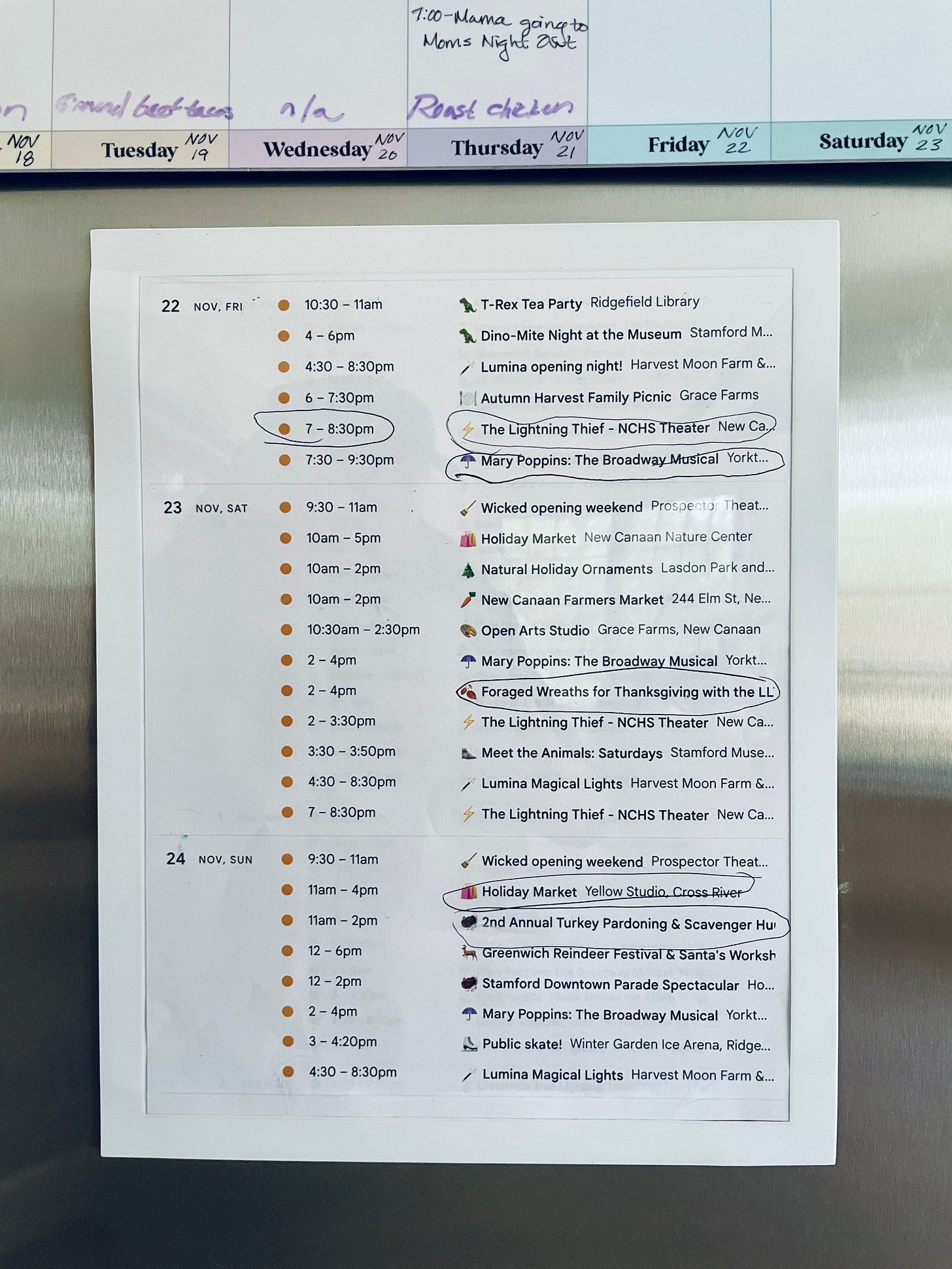Kinkeeping Is Hard, Necessary Work
Kinkeeping is the cognitive labor of "cultivating family connectedness." It doesn't have to be this hard.
Every week I walk around the lake with three friends from my daughter's elementary school. It’s a tradition we started this Fall and it honestly brings me so much joy.
A few weeks ago, my friend Katie brought up her daughter’s upcoming karaoke dance birthday party.
“By the way, are you coming?” she asked my friend Suzy.
“Wait, what party?”
Suzy works full-time, has two young kids, juggles volunteer work and other side projects, and handles most of the family plans. Of course the party invite fell through the cracks. It’s buried under the mound of 500 other things she and her partner have to do to keep the family on track, happy, and connected.
The point is that Suzy’s situation isn’t the exception—it’s the norm.
In her New York Times op-ed last Spring, writer Danielle Friedman stirred a conversation about the invisible work of “kinkeeping.” The family kinkeeper is the person responsible for cultivating a sense of “family solidarity or connectedness.”
The work ranges from managing your kids’ social life (i.e., karaoke birthday parties) to planning magical holiday traditions, to thinking through the weekend and making plans that work for everyone’s schedule (and mood).
It’s the work that Fair Play author Eve Rodsky called “the invisible work” that keeps a family running. Or, as my friend Darcy Lockman wrote in her 2019 best-seller All The Rage: Mothers, Fathers, and the Myth of Equal Partnership, it’s the “cognitive labor of anticipating everyone’s needs, planning, organizing, scheduling, and more.”
Even with a very supportive partner, kinkeeping is hard. The work of maintaining family friendships and extended family connectedness—and staying on top of all the seasonal planning and magic-making—never ends.
In short, kinkeepers (and their partners) are losing their minds.
So, what do we do? The birthday party invites are just going to keep coming, and weekend and holiday family plans still need to happen.
My advice: Share the mental load (and The Plan)
If you’ve got a partner, be honest with him/her about your kinkeeping overwhelm. Invite them to share the mental load with you. As our surgeon general recently advised: “Parenting at its best is meant to be a team sport.”
I started The Plan calendar subscription & weekly newsletter as a way for kinkeepers (AND their partners & kids) to get a better picture of every possible magical weekend event going on around town, to make it easier to make plans as a family.
The point was to completely eliminate the mind-numbing work of scrolling endlessly for stuff to do, and evaluating timing, pricing, and figuring out whether each idea is even worth the time, effort or money.
I started with weekend events because to me, they tackle two things:
1. Events are an excuse to get OUT of the house so your family doesn’t kill each other from cabin fever on the weekends;
2. They’re a REASON to connect with other families, which is essential to your own family’s happiness. (“Hey, we saw this cute event happening on Sunday. Do you guys want to join us?”)

In the before-times, our weekends were a mess. But taking charge like this has improved everything for us. Making a weekend plan as a family, and being intentional about spending time with family friends, has been a game-changer.
So, fellow kinkeepers / family magic-makers: What tips, tricks and systems have you implemented in your family as a way to share the load and lessen the overwhelm? Comment below; I want to hear from you!
xo,
K






Such great points! It’s tough because it’s something I enjoy doing, but it’s also a lot of work! Really glad you’ve put The Plan together! I look forward to it every week ◡̈
Love this : ). Well said, The Plan is such a fantastic resource. Grateful you Kayla, and The Plan!